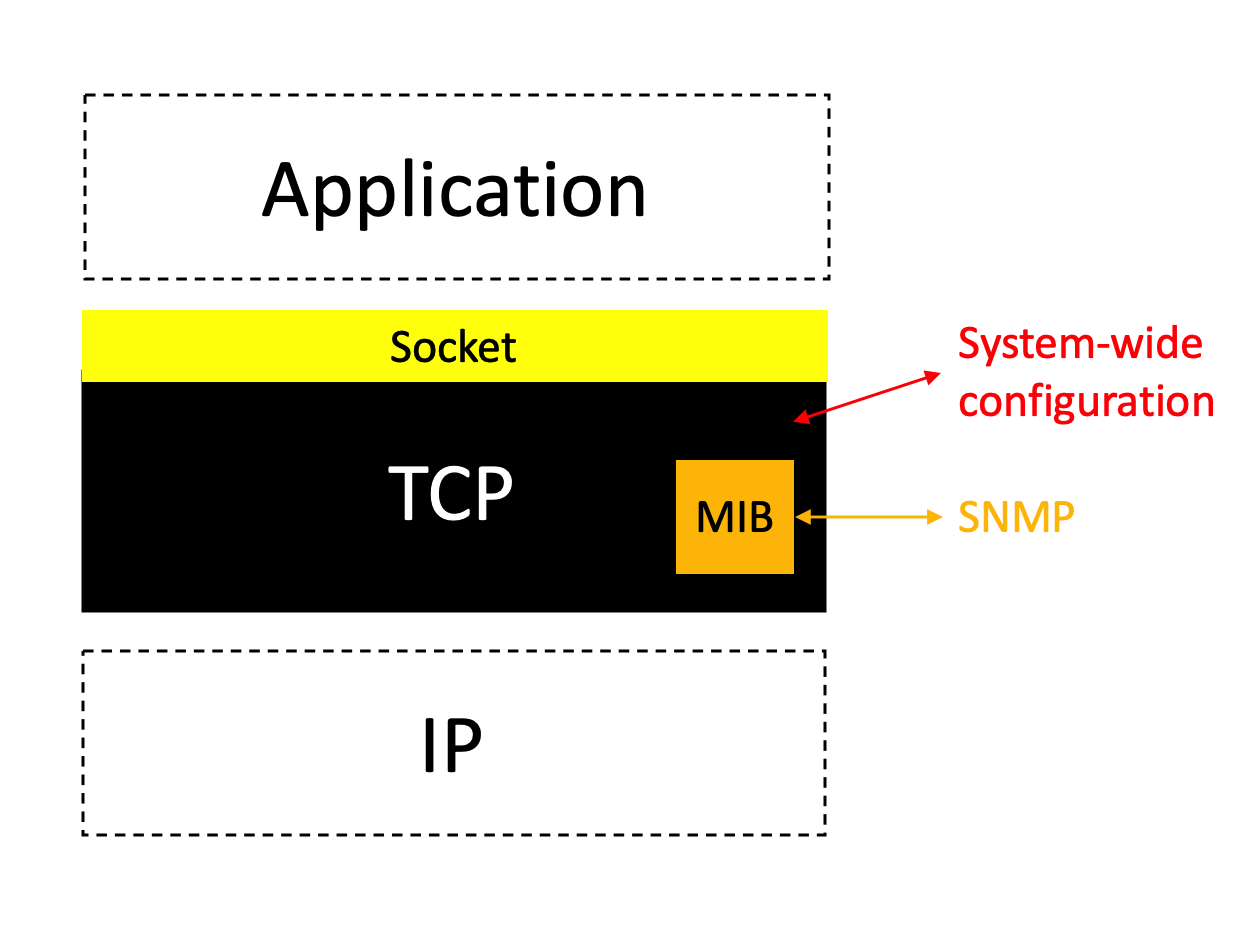Towards more extensible TCP implementations
TCP is one of the most important protocols in today’s Internet. TCP is used by a wide range of applications that require a reliable data transfer.
A TCP implementation is usually considered as a blackbox that interacts with other protocols through four main interfaces:
- the socket API, or an equivalent, that enables applications to create and terminate connections but also send and receive data
- an interface with the IP layer that enables TCP to send and receive packets and process ICMP messages
- an interface with the SNMP agent that exposes a set of metrics through the TCP MIBs
- a set of configuration knobs that allow to set system wide configuration parameters (e.g. systcl on Linux)

TCP has evolved a lot since the publication of RFC793. The latest TCP roadmap document, RFC7414 summarises all the standards-track and experimental RFCs that extend TCP. Extending TCP implementations requires time and effort. Measurement studies demonstrate that several TCP implementations took many years to support new extensions. In An Analysis of Longitudinal TCP Passive Measurements Fukuda shows that it took more than a decade to fully deploy of Selective Acknowledgments, defined in RFC2018 and Window Scale defined in RFC1323. The TCP Timestamps option, also defined in RFC1323 is still not supported by the Windows stack. In Tracking transport-layer evolution with PATHspider, Trammel et al. show that TCP Fast Open (TFO) RFC7413 is still not widely deployed. The same applies to Multipath TCP RFC6824.
The development and the deployment of these extensions shows that future protocol extensions need to be taken into account by implementors when designing an implementation. What could implementors do to better support the extensions that will be invented for the protocol that they implement ?
We believe that one way to solve this problem is to make the protocol
implementations extensible by designing. This implies that in addition
to the four interfaces mentioned above, a TCP implementation should
also include an eXtensibility Interface (XI) that enables it to be
extended by using extensions that we call plugins. A plugin is a piece
of platform independent executable code which can be attached to an
existing TCP implementation to extend it.
There are probably different ways to realize this eXtensibility
Interface in different protocols. For the Linux TCP stack, such an
interface can be created by leveraging the recent efforts that added
eBPF to this stack. Recent versions of the Linux kernel include an
eBPF virtual machine that allows to execute user-supplied bytecode to
collect information about the kernel, but also execute specific
algorithms. Several hooks exist to expose some functions of the Linux
TCP stack to eBPF bytecode. We have demonstrated how
to use this facility to extend the Linux TCP stack in recent papers:
- Viet-Hoang-Tran, Olivier Bonaventure, Making the Linux TCP stack more extensible with eBPF, Netdev 0x03
- Viet-Hoang-Tran, Olivier Bonaventure, Beyond socket options: making the Linux TCP stack truly extensible, IFIP Networking 2019
- Viet-Hoang-Tran, Olivier Bonaventure, Beyond socket options: Towards fully extensible Linux transport stacks,Computer Communications, 2020
The idea of using eBPF to support the implementation of new TCP options using eBPF bytecode has been adopted by the Linux kernel implementors with patches proposed by Martin Kai Lau.
The next step will be to make this idea portable over different TCP implementations.